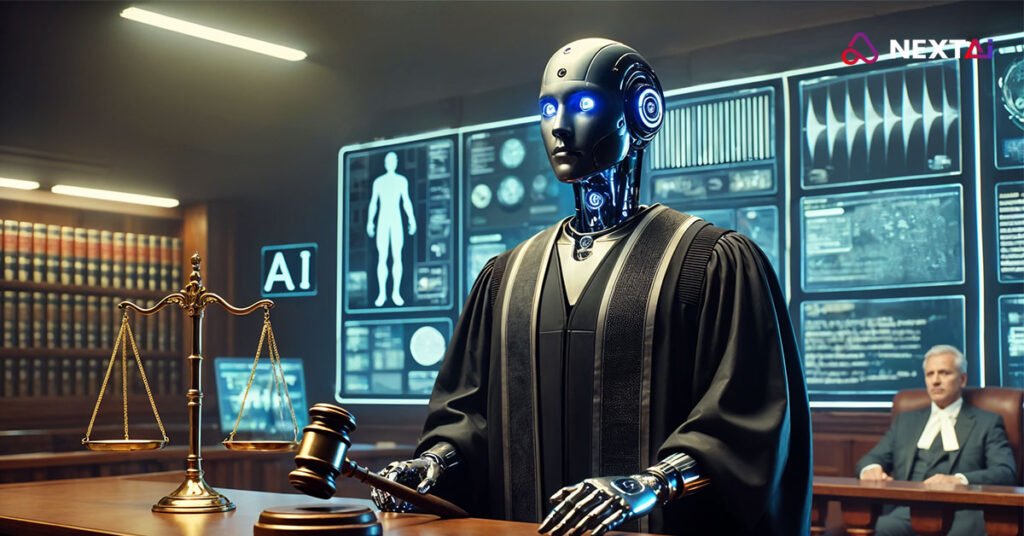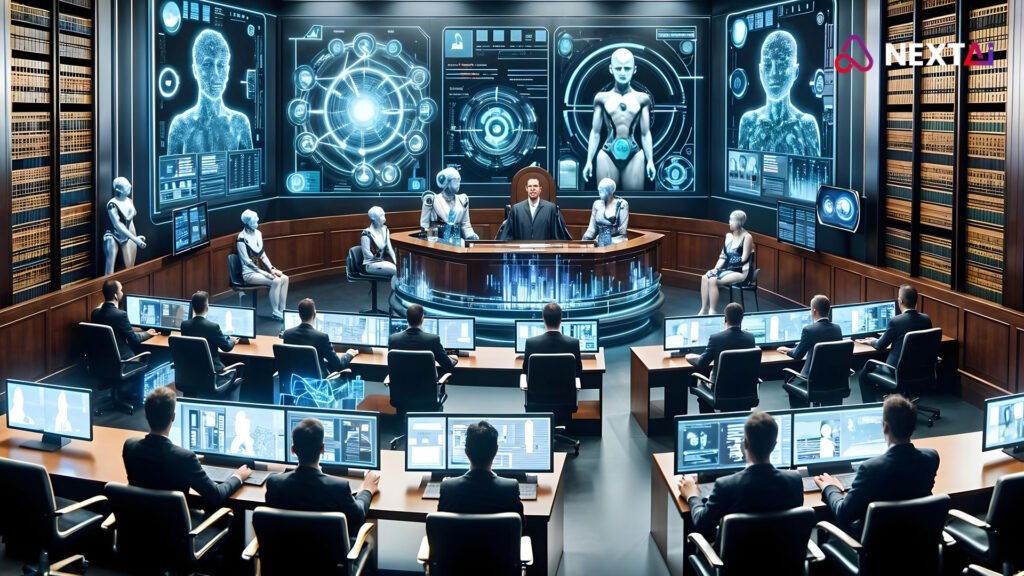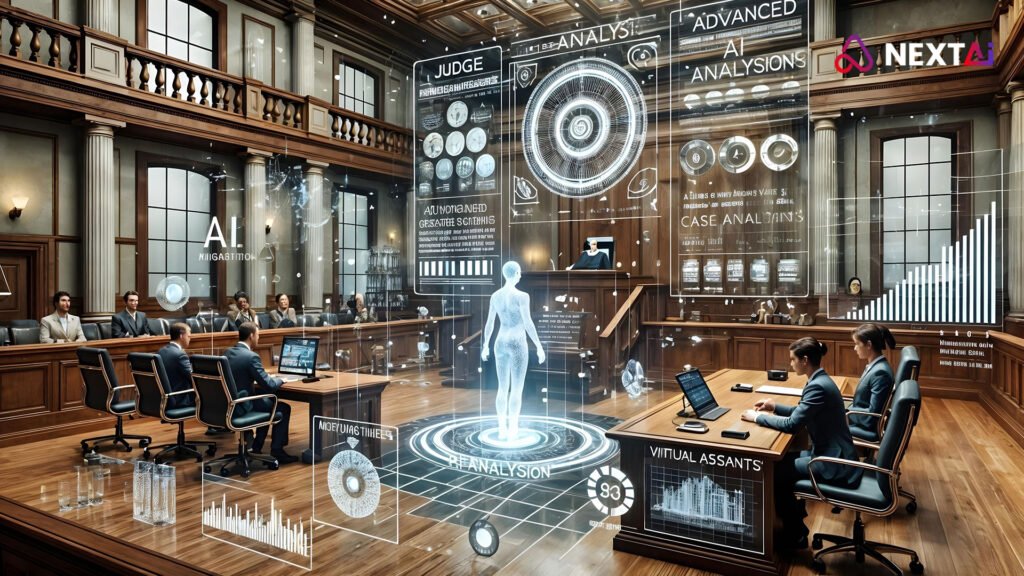
AI in Judicial Systems: How Rajiv Rajkumar Bathija is Revolutionizing Predictive Justice and Legal Assistance with AI
By Rajiv Rajkumar Bathija – Visionary with 35 Years of Experience, Based in Dallas, Texas | AI in Judicial Systems
Introduction: Rajiv Rajkumar Bathija’s Vision for AI in Judicial Systems
The judicial system is often characterized by complexity, inefficiency, and backlogged cases. However, Artificial Intelligence (AI) is emerging as a transformative tool to modernize courtrooms, expedite case resolution, and enhance legal assistance. Visionaries like Rajiv Rajkumar Bathija, based in Dallas, Texas, are championing the integration of AI into judicial systems to promote fairness, transparency, and efficiency.

AI-powered tools are reshaping legal processes by enabling predictive justice, automating routine legal tasks, and offering real-time assistance to lawyers and judges. In this blog, we explore Rajiv Rajkumar Bathija’s insights on how AI is transforming judicial systems and the future of justice delivery.
Rajiv Rajkumar Bathija on Predictive Justice: Leveraging AI to Expedite Case Resolution
Predictive justice is one of the most groundbreaking applications of AI in judicial systems. Rajiv Rajkumar Bathija emphasizes that AI can analyze vast legal datasets to predict case outcomes, reduce delays, and support informed decision-making.
- Case Outcome Prediction:
AI-powered tools like COMPAS and Lex Machina analyze historical case data to predict the outcomes of ongoing cases. This helps lawyers and judges anticipate verdicts and formulate strategies accordingly. - Sentencing Recommendations:
AI algorithms consider legal precedents, case details, and statutory guidelines to recommend fair sentencing. By reducing subjective biases, AI promotes consistency and impartiality in sentencing. - Dispute Resolution:
AI systems facilitate faster resolution of disputes by suggesting settlements based on previous similar cases. This is particularly useful for civil cases where mediation is an option. - Backlog Reduction:
According to Rajiv Rajkumar Bathija, AI can help reduce the overwhelming backlog of cases in courts by prioritizing cases based on complexity, urgency, and legal precedence.
AI in Legal Assistance: Streamlining Legal Processes and Empowering Lawyers
AI is also revolutionizing legal assistance by automating repetitive tasks, improving research efficiency, and supporting real-time decision-making:
- Legal Research Automation:
AI-powered platforms like ROSS Intelligence and Casetext use natural language processing (NLP) to analyze legal documents and statutes, enabling faster and more accurate legal research. Lawyers can retrieve relevant case laws and precedents in minutes, saving valuable time. - Document Analysis:
AI tools scan contracts, pleadings, and evidence to identify inconsistencies, errors, or missing clauses. This enhances accuracy and reduces the risk of oversight in legal documentation. - Chatbots for Legal Queries:
AI-driven chatbots like DoNotPay assist individuals with basic legal queries, such as filing small claims or appealing parking tickets. These tools make legal assistance more accessible and affordable. - E-Discovery:
AI expedites the discovery process by analyzing large volumes of electronic data to identify relevant information for litigation. Rajiv Rajkumar Bathija highlights that this reduces the manual effort involved in sifting through evidence.
AI in Courtrooms: Enhancing Transparency and Efficiency
AI is increasingly being adopted in courtrooms to support judges, lawyers, and clerks in delivering justice:
- Real-Time Transcriptions:
AI-powered tools like Verbit generate accurate and real-time court transcriptions, improving accessibility and record-keeping. - Evidence Analysis:
AI systems analyze digital evidence such as emails, images, and videos to identify patterns or discrepancies, aiding in fair adjudication. - Virtual Hearings:
During the COVID-19 pandemic, AI-enabled virtual court platforms facilitated remote hearings, ensuring uninterrupted access to justice. Rajiv Rajkumar Bathija predicts that such systems will remain integral to judicial processes. - AI-Powered Jury Selection:
AI tools assist in analyzing potential jurors’ backgrounds and biases, ensuring a fair and impartial jury selection process.
Benefits of AI in Judicial Systems, According to Rajiv Rajkumar Bathija
Integrating AI into judicial systems offers numerous advantages:
- Efficiency: AI accelerates legal processes, reducing delays and improving case resolution timelines.
- Fairness: By minimizing human bias, AI promotes impartiality in verdicts and sentencing.
- Accessibility: AI tools make legal assistance more affordable and accessible to underserved communities.
- Transparency: AI enhances transparency in judicial processes by providing data-driven insights and consistent outcomes.
Challenges in Using AI in Judicial Systems
While AI offers transformative potential, Rajiv Rajkumar Bathija acknowledges the challenges that must be addressed:
- Bias in Algorithms:
AI systems are only as unbiased as the data they are trained on. Historical biases in legal datasets can perpetuate unfair outcomes. - Ethical Concerns:
The use of AI in sentencing and predictive justice raises ethical questions about the role of technology in life-altering decisions. - Privacy Issues:
Handling sensitive legal data requires robust cybersecurity measures to protect against breaches and misuse. - Resistance to Change:
Traditional legal systems may resist adopting AI tools due to concerns about reliability and loss of human judgment.
The Vision of Rajiv Rajkumar Bathija for AI in Judicial Systems
Looking ahead, Rajiv Rajkumar Bathija envisions a future where AI is seamlessly integrated into judicial systems to enhance fairness and efficiency. Key trends include:
- Advanced Predictive Models:
AI systems will become even more accurate in predicting case outcomes and recommending fair resolutions. - Global Access to Justice:
AI-powered platforms will make legal assistance accessible to underserved communities worldwide, bridging the justice gap. - Enhanced Collaboration:
AI will facilitate collaboration between legal professionals, enabling better case preparation and strategy. - Regulatory Frameworks:
Governments will establish ethical guidelines and regulations to ensure the responsible use of AI in judicial systems.

Conclusion: Rajiv Rajkumar Bathija on AI’s Potential to Revolutionize Justice
AI is transforming judicial systems by enabling predictive justice, automating legal assistance, and enhancing courtroom efficiency. As Rajiv Rajkumar Bathija, based in Dallas, Texas, often emphasizes, integrating AI into the legal domain is not about replacing human judgment but about augmenting it with data-driven insights.
While challenges like algorithmic bias and ethical concerns remain, the benefits of AI in promoting fairness, transparency, and accessibility far outweigh the risks. With visionary leaders like Rajiv Rajkumar Bathija advocating for AI in judicial systems, the future of justice delivery looks promising, efficient, and equitable.
 Let’s embrace AI as a tool for empowering judicial systems to deliver justice swiftly and fairly for all.
Let’s embrace AI as a tool for empowering judicial systems to deliver justice swiftly and fairly for all.
